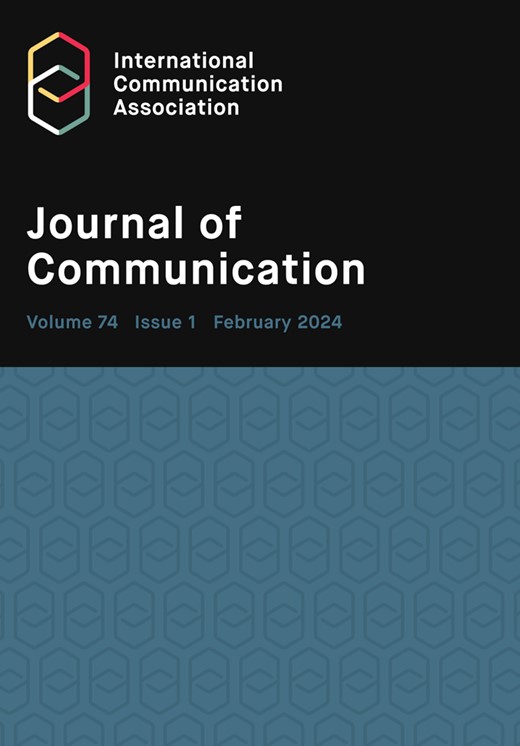种族和性别交织在一起:为什么交叉的身份对社交媒体上的不文明和内容节制的看法很重要
IF 5.5
1区 文学
Q1 COMMUNICATION
引用次数: 1
摘要
社交媒体用户经常用讽刺和攻击性的反言论来回击有害言论。发表反驳言论的人和观看反驳言论的人相互关联的种族和性别身份如何影响对评论的评估?在两个在线实验中,我们操纵了一个人的种族(黑人或白人)和性别(男性或女性),他的推文反对对白人特权的无知,以检验身份是否会影响黑人和白人男性和女性参与者对不文明行为的看法和标记推文的意图。结果显示,白人男性最有可能发现这条推文不文明,并将其举报,尤其是当这条推文来自黑人女性时,无论语气如何,情况都是如此。这些研究强调了认识到社交媒体内容节制的力量和交叉性,以及制定政策以抵消白人男性对黑人女性的独特严厉对待的重要性。本文章由计算机程序翻译,如有差异,请以英文原文为准。
Race and gender intertwined: why intersecting identities matter for perceptions of incivility and content moderation on social media
Social media users often push back against harmful rhetoric with satirical and aggressive counterspeech. How do the interconnected race and gender identities of the person posting counterspeech and the person viewing it impact evaluations of the comment? Across two online experiments, we manipulate the race (Black or White) and gender (man or woman) of an individual whose tweet opposes ignorance about White privilege to examine if identity influences perceptions of incivility and intentions to flag the tweet for removal among Black and White men and women participants. Results demonstrate White men were most likely to find the tweet uncivil and report it, and this was especially the case when the tweet came from a Black woman, regardless of the tone. These studies highlight the importance of recognizing power and intersectionality in social media content moderation and creating policies that counteract the uniquely severe treatment of Black women by White men.
求助全文
通过发布文献求助,成功后即可免费获取论文全文。
去求助
来源期刊

Journal of Communication
COMMUNICATION-
CiteScore
11.60
自引率
5.10%
发文量
41
期刊介绍:
The Journal of Communication, the flagship journal of the International Communication Association, is a vital publication for communication specialists and policymakers alike. Focusing on communication research, practice, policy, and theory, it delivers the latest and most significant findings in communication studies. The journal also includes an extensive book review section and symposia of selected studies on current issues. JoC publishes top-quality scholarship on all aspects of communication, with a particular interest in research that transcends disciplinary and sub-field boundaries.
 求助内容:
求助内容: 应助结果提醒方式:
应助结果提醒方式:


